
A Complete Guide to Choosing Wedding Band Metal for Hot Climates
Hot weather can be tough on your wedding band.
Some metals handle heat and humidity better than others.
In this guide, you’ll learn about the best wedding ring metals Arizona couples should consider for durability in high temperatures.
Key Takeaways
- Platinum, titanium, and tungsten carbide are the best metals for wedding bands in hot climates. They handle heat, resist tarnish, and stay durable over time.
- Titanium is lightweight, corrosion-resistant, and stays cool to touch. It’s also hypoallergenic for sensitive skin types.
- Tungsten carbide resists scratches better than gold or silver and keeps its shine even in humid weather.
- High temperatures can loosen diamond settings due to metal expansion; regular checks are essential.
- Proper care like cleaning sweat off the band and storing it in a dry place helps maintain durability and appearance.
Exploring Metal Durability in Hot Climates
Hot weather can affect wedding bands in many ways.
Some metals handle heat and moisture better than others, staying strong and shiny over time.
Assessing Heat Resistance

Heat can weaken some metals used in wedding bands.
Softer metals like gold alloys, such as white gold or yellow gold, may warp under extreme temperatures.
Alloyed metals combined with stronger elements can withstand heat better but are still not immune.
Tougher choices include platinum and tungsten carbide.
These resist high temperatures without losing shape or shine.
Titanium also performs well due to its lightweight yet durable nature.
In hot climates, choose metals designed to handle the heat without compromising their beauty.
Evaluating Corrosion and Tarnish Resistance

High temperatures can speed up corrosion and tarnish on metals.
Sweat, humidity, and salt air make this worse.
These factors matter for your wedding band, especially in hot climates.
Platinum resists tarnish well due to its density.
Titanium offers great corrosion resistance without being a heavier metal.
White gold or rose gold may show wear faster if not coated well.
Cobalt chrome balances durability and shine but still needs care.
Always consider how these metals handle exposure to moisture over time.
Top Metals for Wedding Bands in Hot Climates
Choosing the right metal for wedding bands can make a big difference in hot climates.
Some metals resist heat, sweat, and wear better than others.
Platinum Characteristics
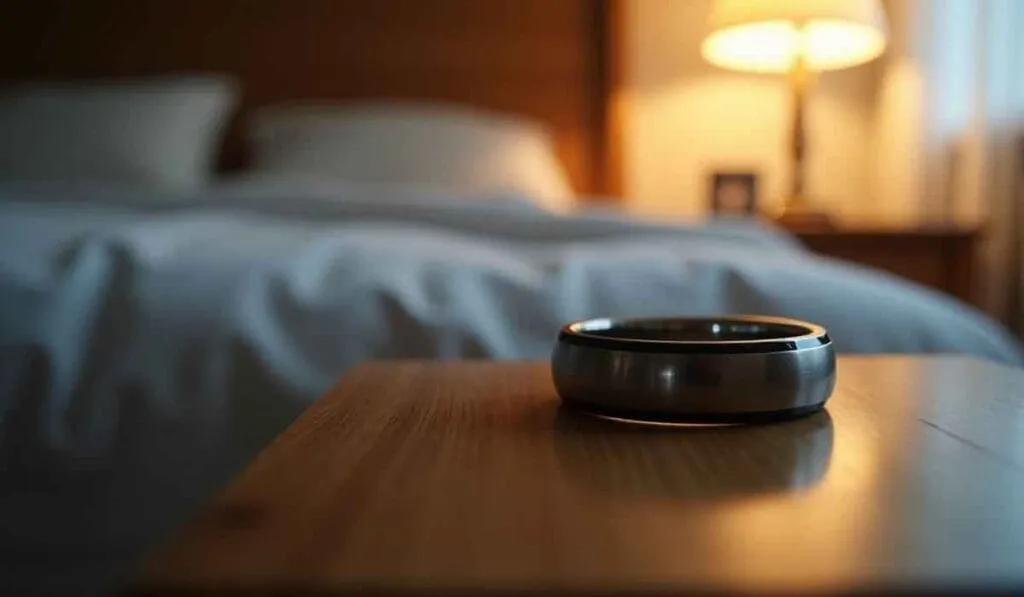
Platinum is one of the strongest metals for wedding bands.
It resists heat well, making it ideal for hot climates.
This metal does not warp or weaken under high temperatures.
It keeps its beauty even in tough conditions.
Platinum does not tarnish easily and rarely causes allergies.
Its natural white shine pairs perfectly with diamond engagement rings and lab-grown diamonds.
Though heavier than yellow gold or titanium, its durability makes up for it.
Platinum men’s wedding bands last a lifetime with proper care.
Platinum’s strength ensures your band stands the test of time.
Titanium Advantages
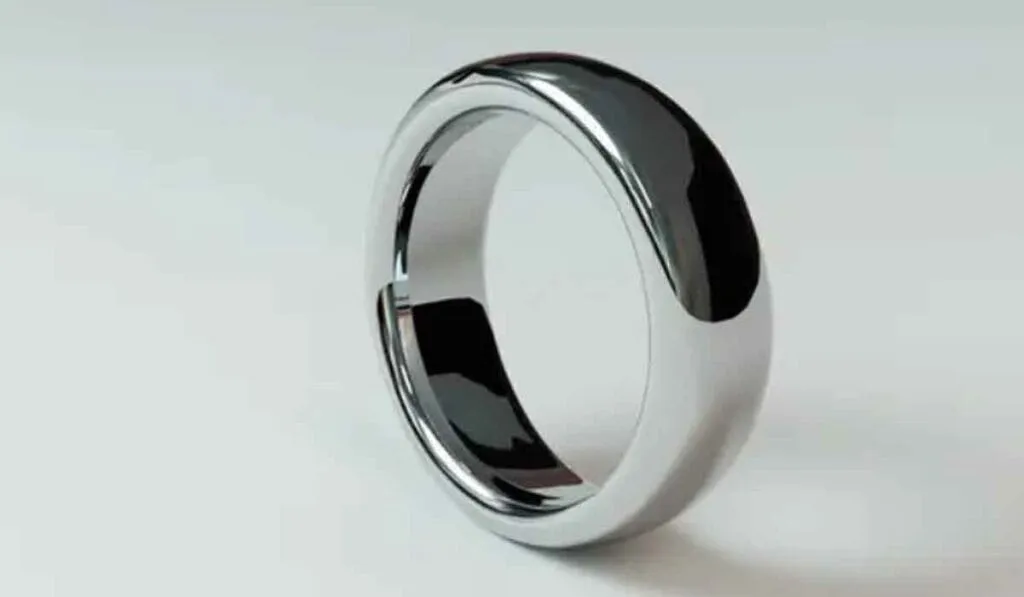
Titanium resists heat, making it ideal for hot climates.
It stays cool to the touch even in high temperatures.
This metal won’t warp or weaken under intense sun exposure, ensuring your wedding band keeps its shape.
Its lightweight design adds comfort, especially if you live in a warmer area and wear it daily.
It also resists corrosion, meaning sweat or moisture won’t harm it over time.
You don’t need to worry about tarnish either—it maintains its sleek look with ease.
For men’s wedding bands, titanium is both durable and stylish.
Plus, it’s hypoallergenic—perfect if you have sensitive skin!
Tungsten Carbide Benefits
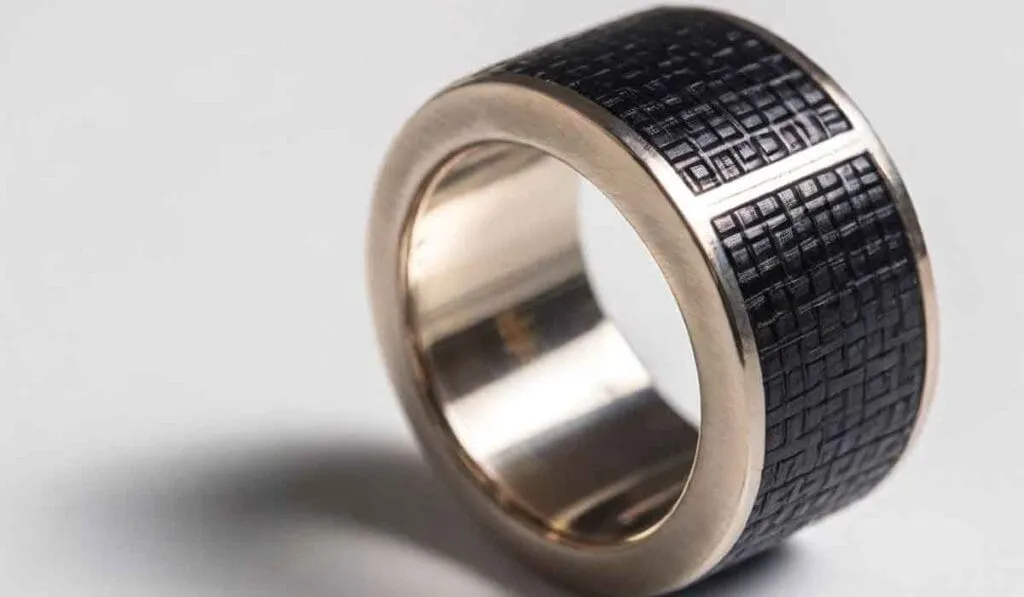
Tungsten carbide stands out for its toughness.
This metal is one of the hardest materials used in men’s wedding bands.
It resists scratches better than gold, silver, or even platinum.
In hot climates, this property keeps your wedding band looking new without frequent polishing.
Its durability also makes it ideal for resisting corrosion and tarnish in humid weather.
Unlike yellow gold or white gold, tungsten carbide won’t fade or lose shine easily.
You can wear it daily without worrying about heat damage or constant maintenance costs.
Care Tips for Wedding Bands in High Temperatures
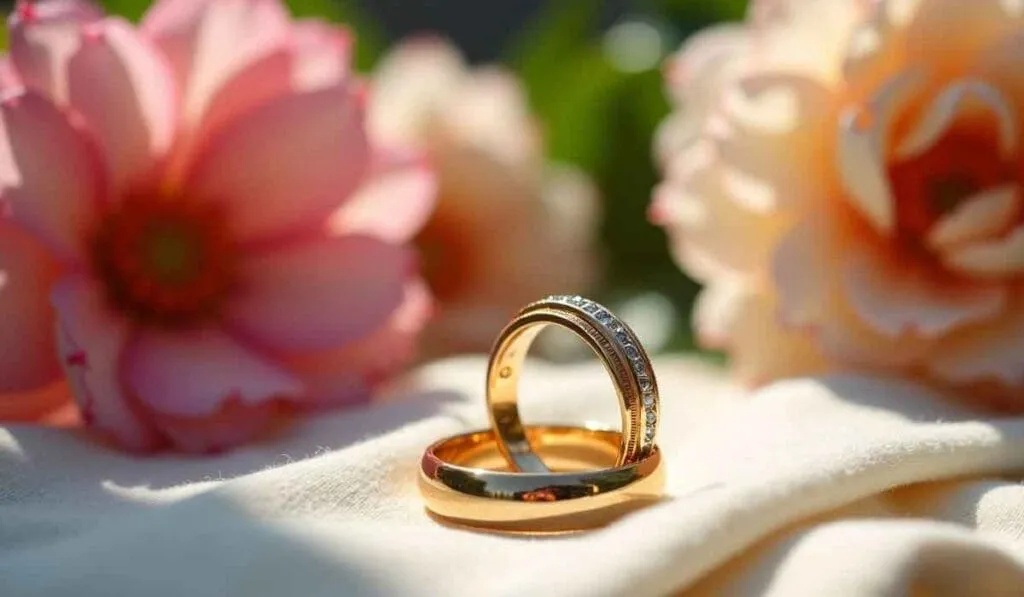
High temperatures can affect your wedding band’s look and durability.
Protecting it ensures it lasts for years.
- Take off your wedding band during outdoor activities in extreme heat to avoid damage or discomfort.
- Use a gentle cleaning solution to remove sweat and oils that may build up on the metal.
- Store the band in a cool, dry place when not wearing it to prevent tarnish or warping.
- Avoid contact with harsh chemicals like bleach or cleaners that can weaken metals like white gold or yellow gold.
- For diamond engagement rings, check the setting regularly since metal expands slightly in heat, loosening stones.
- Consult your jeweler if you notice discoloration or other signs of wear, especially with men’s wedding bands made of softer materials like gold.
- To keep the shine intact without using harmful products at home, opt for professional jewelry cleaning through virtual appointments with trusted jewelers.
Conclusion
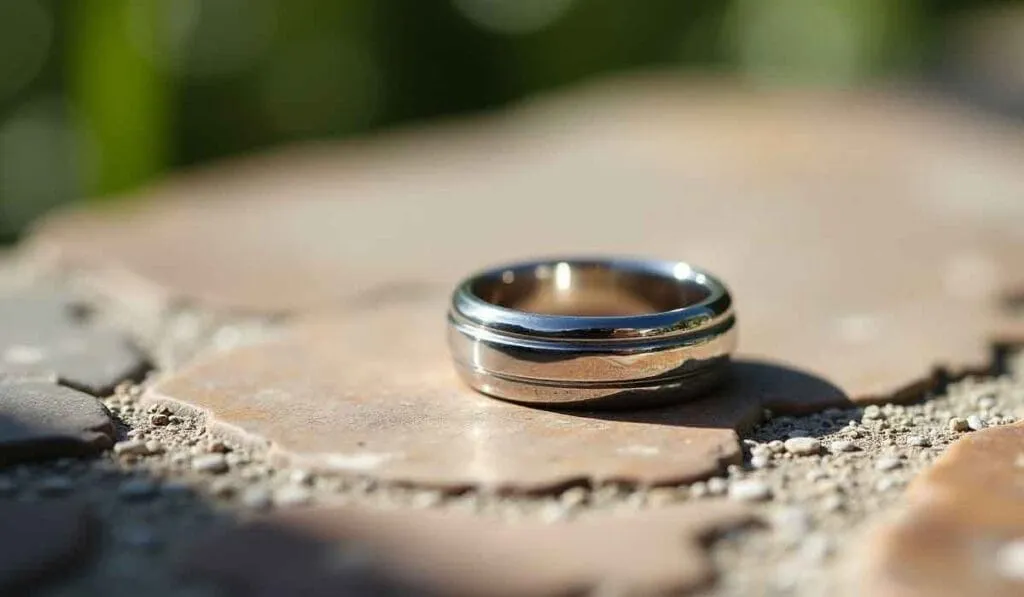
Choosing the right wedding band is crucial for hot climates.
Metals like platinum, titanium, and tungsten carbide offer great durability.
They resist heat, tarnish, and scratches well.
With proper care, your band will stay stunning for years.
Make a lasting choice that fits both style and strength!
FAQs
1. What is the best metal for wedding bands in hot climates?
Metals like yellow gold and white gold are popular for wedding bands, but they may scratch or fade over time in extreme heat. Platinum is more durable and resists wear better in hot conditions.
2. Does heat affect diamond engagement rings?
Heat doesn’t harm natural or lab-grown diamonds but can loosen their settings. Regular checks with jewellers help keep your diamond gemstones secure.
3. Are men’s wedding bands different from women’s regarding durability?
Men’s wedding bands are often thicker and made of tougher metals like tungsten or titanium, which hold up better in high temperatures compared to softer options like 14-karat gold.
4. Can I customize a durable engagement ring for hot weather?
Yes! Many jewellers offer custom designs using stronger materials like platinum or lab-grown diamonds that handle heat well while still looking stunning.
5. How do I pay for a custom ring if I live somewhere with customs fees?
Most jewellers accept various payments such as debit, cash, or credit cards; however, check if additional costs apply due to customs when ordering internationally.




